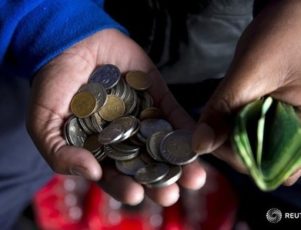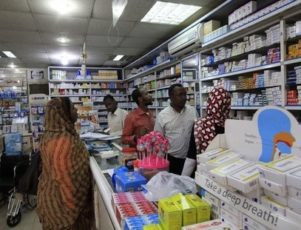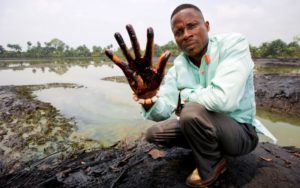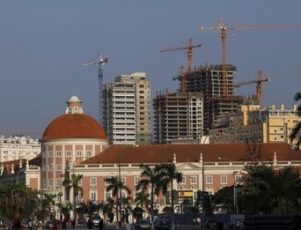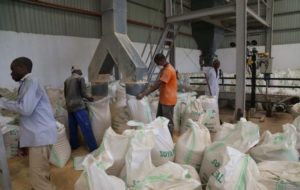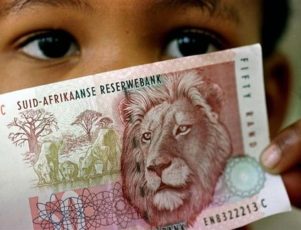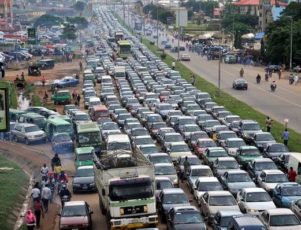The West African nation, the seventh largest exporter in the world, reached a record yield of one million metric tons in 2015.
Fueled by Chinese demand for peanuts, the price of the groundnut is on the rise in much of the world to the benefit of major exporters such as Senegal.
China, a major peanut producer itself, imports Senegalese peanuts to make oil, which is becoming increasing popular among Chinese consumers.
The West African nation, the world’s seventh largest exporter of peanut, has steadily increased its crop. Peanut production reached a record one million metric tons in 2015 and even greater yields are expected this year if rains are good.
Growth in peanut yields, along with targeted growth in rice production, could make the country self-sufficient by 2017, Senegalese President Macky Sall said. Rice production has doubled to 900,000 tons in the past four years and is on track to again double in the next two years, Sall said.
The country’s farmers have adopted genetically modified seed to improve yields, and improvements in transportation and energy supplies have helped drive growth.
Senegal plans bond issue
Doubling down on crop exports, Senegal plans to issue a bond of $500 million to $1 billion this year to fund infrastructure development to spur more growth in the agricultural sector, Sall said.
Senegal’s economic ambitions are benefitting from a surge in peanut prices, driven by an increase in Chinese demand and weather disruptions in key growing regions.
According to the Financial Times, health-conscious Chinese consumers are snacking more on peanuts and using peanut oil for cooking.

Women sorting peanuts in central Senegalese village
As a result, China is going from being a leading exporter of peanuts to a major importer. Chinese exports have declined by about half to about 500,000 tons during the past 10 years while imports have increased by 50%.
According to the National Peanut Board, China remains the largest producer of peanuts in the world, with yields of more than 16 million tons per year, followed by India and the United States. Global production totals about 29 million metric tons a year with about 1.25 million tons making up exports. India, the United States, and Argentina are the largest exporters of peanuts.
Prices raise 20-30 percent
Chinese demand has pushed the price of peanuts up by 20-30% this year. “They are just hoovering everything up,” one London trader said.
While the weather looks promising for peanut yields in Senegal, other major producers have see disruptions because of bad weather. India has suffered poor harvest for two years because of weak monsoons.
Argentina, a leading supplier of Europe, is expected to suffer crop losses of 20-40% because of rain damage. Poor weather also may limit this year’s crop in South Africa.
Ironically, the United States, which produces about 10% of global supplies, is experiencing a peanut glut and lower prices. As a result, farmers are turning their crops over to the federal government as a form of repayment of annual loans. The U.S. government, in turn, plans to send 500 metric tons of peanuts to Haiti as humanitarian aid.
China helps increase yields
In 2014, China and Senegal completed a cooperative agreement designed to boost the African nation’s production of peanuts as well as its exports to China. Under the deal, China helped establish an agricultural technology demonstration center in Senegal in order to increase the capacity of farmers to adopt more efficient and competitive methods such as those employed by Chinese farmers.
In addition to assistance from China, the Islamic Development Bank has committed $220 million to finance water and other infrastructure projects related to groundnut production in Senegal. The World Bank has approved $20 million in financing to help boost crop yields.
Senegal’s bond issue later this year will also spur growth.
“The money will be used totally for infrastructure, roads and power. A little bit may be for health facilities and education,” Sall, the nation’s president, said. The government is targeting a yield of 6% or less for the new bond.
Economic success story
Sall, a geological engineer who won the presidency in 2012, has overseen steady expansion of the Senegalese economy as the country has improved transport connections and power supplies. Since 2012, economic growth has averaged 4.7% in Senegal – one of the highest rates in sub-Saharan Africa – and the economy is expected to grow by 6.6% this year.
Senegal is also counting on energy to boost its economy. Gas production from two offshore fields is scheduled to start in 2020. A year or two later, Senegal expects to start producing oil from a deep-water well.
Senegalese production also has plenty of room to grow. Yields are approximately 950 kilos per hectare in Senegal, less than a third of the 3,500 kilos per hectare that the Chinese produce and slightly more than half of the average global yield of 1,674 kilos.
Read more




